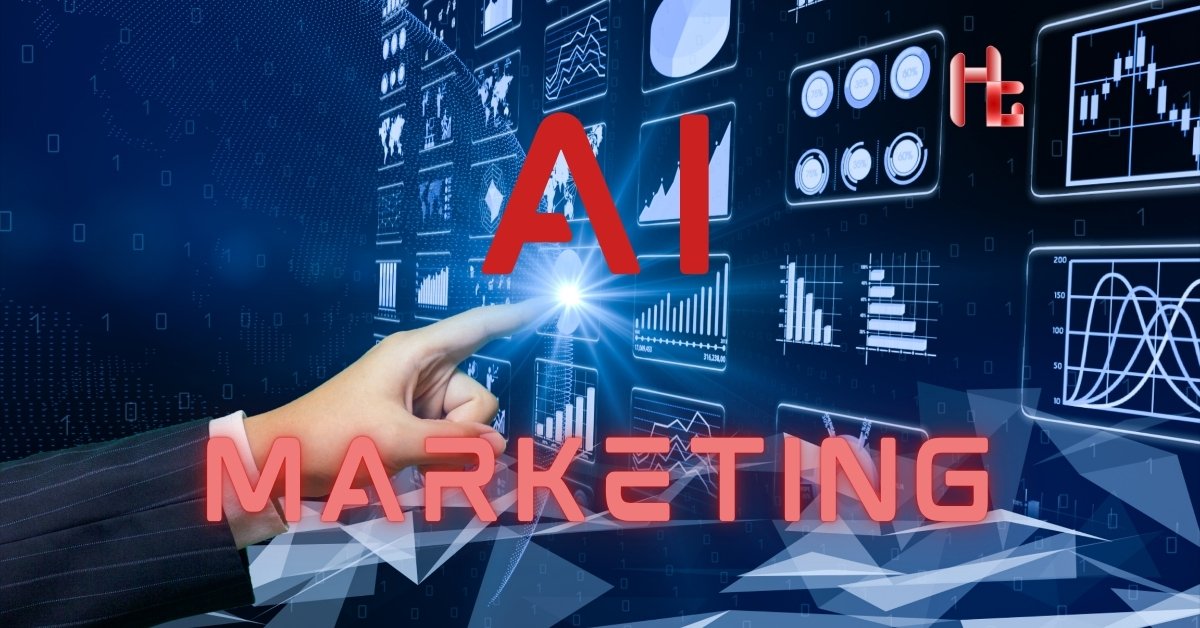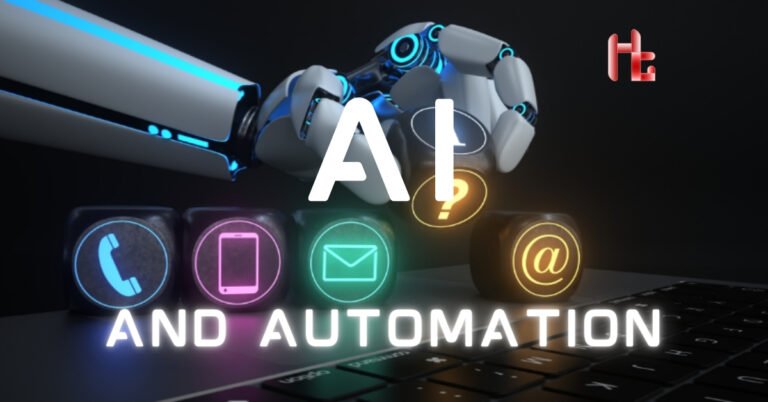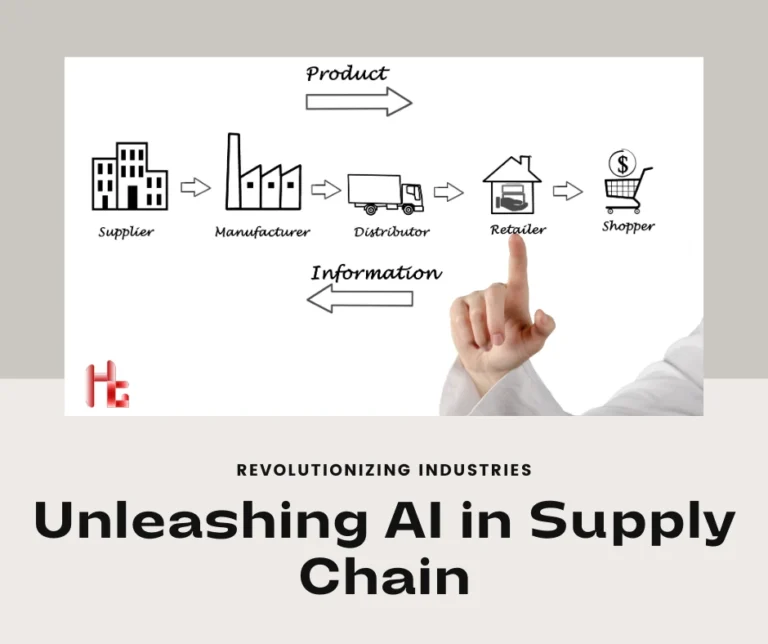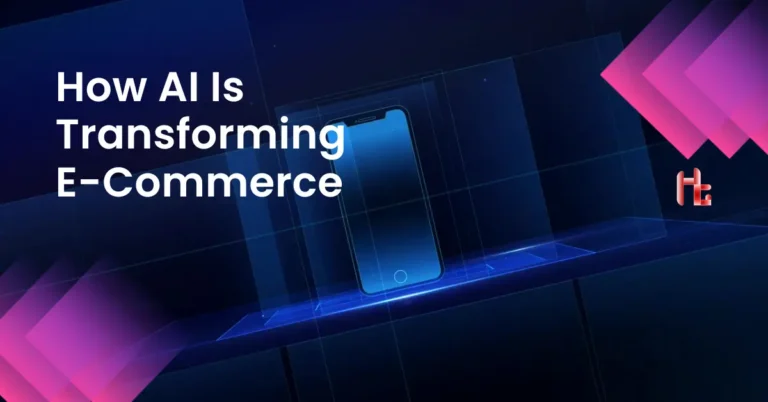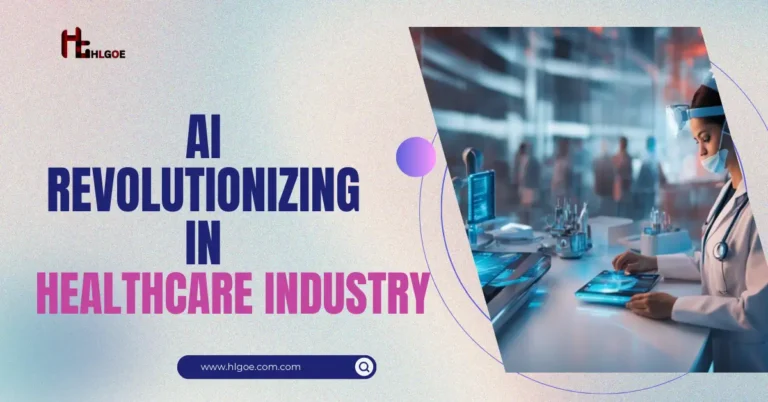How AI Is Enhancing Personalization in Marketing
In the ever-evolving world of AI Marketing, personalization is no longer just a luxury—it’s a necessity. Consumers today expect tailored experiences that resonate with their specific needs and preferences. But how can brands deliver this level of customization efficiently and at scale? The answer lies in AI marketing. Through the power of Artificial Intelligence, businesses are now able to deliver personalized ads and create highly relevant marketing content in ways that were previously impossible.
AI in digital marketing is revolutionizing the landscape, making it more dynamic, responsive, and, most importantly, customer-centric. Let’s dive into how AI is enhancing personalization in marketing, exploring the various tools and strategies that are reshaping how businesses engage with their audiences.
Introduction
In today’s fast-paced digital world, where consumers are bombarded with an overwhelming amount of information, standing out as a brand has never been more challenging. Enter Artificial Intelligence (AI) — a game-changer in how companies are connecting with their audiences. AI marketing is transforming traditional marketing strategies by enabling brands to deliver hyper-targeted, personalized experiences that resonate deeply with customers. Gone are the days of generic ads and one-size-fits-all campaigns. With the power of AI, marketers now have the tools to tailor their efforts to each individual’s unique preferences, behaviors, and needs, ensuring that their messages are not just seen, but truly noticed.
Personalized ads are no longer a futuristic concept; they are already here, and they are revolutionizing how businesses interact with their customers. Thanks to AI’s ability to analyze vast amounts of data in real time, marketers can now create ads that feel incredibly relevant to each user. Whether it’s an online shopper receiving product recommendations based on their past behavior or a social media user encountering a dynamic ad featuring products they’ve shown interest in, AI ensures that consumers are shown exactly what they’re looking for, right when they’re looking for it.
But the magic of AI in digital marketing goes far beyond just personalization. It’s about creating seamless, automated experiences that deliver the right message at the right moment. AI helps businesses optimize their marketing efforts across various platforms, from social media to email campaigns, by predicting customer preferences and automating the content that is delivered. With machine learning and predictive analytics, AI can help identify trends and behaviors that may otherwise go unnoticed, empowering marketers to stay ahead of the curve and make smarter decisions.
The impact of AI on personalization goes even deeper, fostering a stronger connection between brands and their audiences. By leveraging AI-driven insights, businesses can better understand their customers’ needs and anticipate their future behaviors. Whether it’s through chatbots that provide immediate assistance or tailored content that feels like it was crafted just for them, customers are more likely to engage with brands that truly understand them. This level of personalization builds trust and loyalty, two critical factors in today’s competitive market.
As AI continues to evolve, the possibilities for personalization in marketing are virtually limitless. From voice assistants like Alexa recommending products to AI algorithms optimizing email subject lines for maximum engagement, the integration of AI in digital marketing is transforming the way businesses interact with customers. The future of marketing is undoubtedly AI-powered, and those who embrace this technology early will be well-positioned to reap its rewards.
So, how exactly is AI enhancing personalization in marketing? In this post, we’ll explore the exciting ways that AI marketing is reshaping how brands communicate with their audiences, and how businesses can harness its power to create more personalized, engaging, and effective marketing strategies. Whether you’re a marketer looking to stay ahead of the curve or a business owner trying to understand the potential of AI, this guide will shed light on the incredible opportunities AI offers in creating a more personalized marketing experience.
What is AI Marketing?
AI marketing refers to the use of artificial intelligence technologies to improve marketing efforts. Unlike traditional marketing methods that rely on manual analysis, AI in marketing leverages data and algorithms to automate processes, predict consumer behavior, and create personalized experiences at scale.
AI marketing is transforming how businesses understand their audiences. By using machine learning (ML), natural language processing (NLP), and predictive analytics, AI can analyze vast amounts of data in real-time. It can learn from consumer interactions, identify patterns, and adjust marketing strategies accordingly. This is a far cry from traditional marketing, which often involves making assumptions based on limited data.
One of the key benefits of AI marketing is its ability to optimize the customer journey. It allows brands to deliver the right message at the right time, creating a seamless experience for consumers. With AI, marketers can refine campaigns, improve targeting, and even automate processes like content creation or campaign optimization.
Through AI-powered insights, brands can unlock deep personalization and customize everything from product recommendations to pricing strategies. As AI evolves, its impact on marketing continues to grow, with many businesses now relying on AI-driven platforms to streamline operations and increase customer satisfaction.
The Role of Personalized Ads in AI Marketing
Personalized ads are the cornerstone of AI marketing. In a world where consumers are bombarded with advertisements at every turn, standing out with relevant, targeted ads is essential. AI enables marketers to create personalized ads that cater to the individual needs and behaviors of their audience.
What makes AI so powerful in personalized advertising is its ability to analyze user data, such as browsing behavior, purchase history, and even social media activity, to tailor ads that speak directly to the consumer’s preferences. AI in digital marketing allows for dynamic ad creation, meaning that an ad can be continuously adjusted based on real-time data about the viewer. For example, if a customer browses a website but doesn’t make a purchase, AI-powered personalized ads can follow them across platforms with product recommendations or special offers tailored to their interests.
Consider how social media platforms like Facebook and Instagram leverage AI for personalized ads. These platforms collect a wealth of data about their users, from their likes and shares to their search history and even the types of content they engage with. AI then uses this data to create targeted ads that are shown only to those most likely to engage, increasing the efficiency and ROI of campaigns.
But personalized ads don’t just stop at retargeting. AI can also create hyper-targeted ads based on location, time of day, and even device type. For instance, if someone is walking past a store and has shown interest in a product online, they might receive an ad for a discount on that product—right when they’re most likely to make a purchase.
AI-powered personalized ads create a much more engaging experience for consumers. Instead of generic ads that are often ignored, these personalized ads feel relevant and timely, which leads to higher engagement and, ultimately, higher conversion rates. Personalized advertising is more effective than traditional advertising because it provides consumers with what they want, when they want it.
AI in Digital Marketing: Key Benefits
The integration of AI in digital marketing offers a wide range of benefits for businesses looking to improve their marketing strategies. Let’s explore some of the key advantages that AI brings to the table.
1. Data-Driven Decision Making
AI enables marketers to make data-driven decisions with greater confidence. By analyzing vast amounts of consumer data, AI helps marketers identify trends and patterns that may not be immediately apparent. For example, AI can detect changes in customer behavior, predict future buying patterns, and even suggest the best time to send an email or launch a campaign.
With these insights, marketers can craft campaigns that are not only personalized but also more effective. AI’s ability to segment audiences based on demographics, behavior, and preferences ensures that campaigns are more targeted and relevant. This level of precision reduces the guesswork in marketing strategies and leads to higher engagement and conversion rates.
2. Automation of Routine Tasks
One of the most significant advantages of AI in digital marketing is automation. AI can take over many time-consuming tasks that traditionally required manual effort, such as content creation, email scheduling, and social media management. Tools like AI-powered chatbots can handle customer inquiries, while machine learning algorithms can automatically optimize campaigns in real-time.
This automation saves businesses a significant amount of time and resources, allowing marketing teams to focus on more strategic initiatives. Additionally, automated tasks are less prone to human error, resulting in smoother and more efficient marketing operations.
3. Enhanced Customer Experience
AI’s ability to personalize content and predict customer needs enhances the overall customer experience. By analyzing past interactions, AI can offer personalized product recommendations, create tailored content, and even predict what a customer might want next. This creates a seamless, frictionless experience where customers feel understood and valued.
For example, Netflix uses AI to suggest shows and movies based on a user’s viewing history, while Amazon recommends products based on previous purchases. These personalized experiences keep customers engaged and coming back for more.
4. Predictive Analytics
AI’s predictive capabilities are a game changer in marketing. By analyzing historical data and identifying patterns, AI can predict future behaviors, such as when a customer is likely to make a purchase or which products they might be interested in. This allows marketers to proactively reach out to customers with personalized offers or targeted campaigns.
For example, if AI predicts that a customer is likely to abandon their shopping cart, it can trigger an automated email with a special offer or reminder. This predictive marketing not only boosts conversions but also helps brands anticipate and respond to customer needs before they even arise.
5. Increased ROI
AI-powered marketing strategies are more efficient and cost-effective. By automating tasks, optimizing campaigns, and targeting the right audience, businesses can significantly improve their return on investment (ROI). Personalized ads and content tailored to the right audience lead to higher engagement and better conversion rates, which ultimately drives revenue growth.
Read More: Preparing for an AI Powered Future
Marketers can track the performance of their AI-driven campaigns in real-time, allowing them to make adjustments as needed to improve results. This agility and data-driven approach ensure that marketing budgets are spent wisely, maximizing ROI.
Creating a Seamless Customer Experience with AI
Personalization is at the heart of creating a seamless customer experience, and AI is the perfect tool to achieve this. By analyzing customer data and predicting their behavior, AI allows marketers to anticipate their needs and deliver relevant content at exactly the right moment. This level of precision not only makes the experience more enjoyable but also builds trust and loyalty with consumers.
1. AI-Powered Chatbots and Customer Service
AI-powered chatbots have become an essential part of many businesses’ customer service strategies. These chatbots use NLP to understand customer queries and provide immediate responses. Not only do they offer 24/7 support, but they can also personalize the conversation based on customer data.
For instance, if a customer reaches out with a question about a specific product, the chatbot can pull up previous interactions and recommend similar items or provide personalized offers. This level of personalization enhances the customer experience, making them feel heard and valued.
2. Dynamic Content and Recommendations
AI also enables dynamic content creation that adapts based on user behavior. On e-commerce websites, AI can display personalized product recommendations based on the customer’s browsing history or previous purchases. On streaming platforms, AI can suggest movies and TV shows tailored to a user’s preferences.
AI in digital marketing allows businesses to create content that evolves based on real-time data. This ensures that customers are always presented with the most relevant and engaging content, whether it’s through personalized email campaigns, product pages, or advertisements.
3. Real-Time Personalization
One of the most powerful aspects of AI is its ability to personalize content in real time. As customers engage with websites, mobile apps, or social media platforms, AI can instantly analyze their behavior and adapt the content they see. This could mean adjusting the product recommendations shown to a customer on an e-commerce site or modifying the content of an email campaign based on the recipient’s past interactions with the brand.
Real-time personalization ensures that customers are always seeing the most relevant information, making them more likely to engage with the brand. It also helps create a frictionless experience where customers feel like the brand understands them and their needs.
Building Customer Trust and Loyalty Through Personalization
Personalization in marketing is not just about creating relevant ads or product recommendations—it’s about building deeper, more meaningful relationships with customers. When brands take the time to understand their customers’ preferences and needs, it creates a sense of trust and loyalty that is crucial in today’s competitive market. AI marketing plays a pivotal role in nurturing this connection by delivering personalized experiences that show customers they are valued.
1. Personalized Communication Builds Trust
When customers feel like a brand understands them on a personal level, they are more likely to trust that brand. AI enables personalized communication by leveraging customer data to craft messages that resonate with individuals. For example, a brand that addresses a customer by their first name, offers personalized discounts, or reminds them of abandoned carts demonstrates attentiveness and care.
By using AI to segment customers based on their behavior, preferences, and demographics, marketers can tailor messages that feel specific and relevant. Rather than receiving generic emails or ads, customers are shown content that aligns with their interests or past interactions with the brand. This type of communication not only strengthens the customer relationship but also fosters a sense of trust, which is essential for long-term brand loyalty.
2. AI Creates Tailored Rewards and Loyalty Programs
AI in digital marketing also helps brands develop tailored loyalty programs that encourage repeat purchases and customer retention. By analyzing customer behavior, AI can help businesses offer personalized rewards based on individual preferences. For example, a frequent shopper might receive exclusive discounts, free shipping offers, or early access to new products based on their purchase history.
Additionally, AI can help brands identify which customers are at risk of leaving and provide personalized incentives to keep them engaged. A personalized discount for a customer who hasn’t purchased in a while or an invitation to a special event can go a long way in re-engaging a lapsed customer. This proactive approach to retention helps businesses stay ahead of churn and build lasting customer loyalty.
3. Customer-Centric AI Tools for Personalized Experiences
AI also plays a crucial role in providing more direct customer interaction through tools like AI-powered chatbots, virtual assistants, and voice-activated services. These tools allow businesses to offer real-time support, answer queries, and even recommend products based on a customer’s profile. Whether a customer is shopping on an e-commerce site or seeking assistance through a mobile app, AI-powered tools ensure that their experience is smooth, intuitive, and highly personalized.
For example, if a customer reaches out with a question about a product, the AI system can pull up their previous interactions, suggest relevant products, and even offer special promotions based on their purchase history. This level of personalization not only makes the interaction more efficient but also gives customers the sense that the brand is genuinely invested in meeting their needs.
The Future of AI in Marketing
As AI continues to advance, its role in marketing will only become more integral. The future of AI in marketing is brimming with possibilities, from even more refined personalization techniques to new forms of customer engagement. Here’s a glimpse of what we can expect in the coming years.
1. Voice-Activated AI and Virtual Assistants
The rise of voice-activated devices like Amazon’s Alexa, Google Assistant, and Apple’s Siri has opened up new opportunities for AI-powered personalization. As more consumers use voice assistants to shop, search, and interact with brands, AI will play a central role in shaping these experiences. In the future, voice-activated AI could help brands personalize their communication with customers in ways that feel even more natural and intuitive.
For example, a customer might ask their voice assistant for product recommendations or even inquire about a brand’s latest offers, and AI could provide tailored suggestions based on their preferences. Voice technology, when combined with AI-driven personalization, could lead to seamless and context-aware interactions that are powered by natural language processing.
2. AI and Augmented Reality (AR) Integration
Another exciting possibility is the integration of AI with augmented reality (AR). As AR technology becomes more prevalent, brands will be able to create highly immersive, interactive experiences that blend the physical and digital worlds. AI could play a role in personalizing AR experiences by analyzing consumer behavior and preferences in real time.
Imagine shopping for furniture on an online store and using an AR app to visualize how a particular piece would look in your living room. AI could recommend different styles or even offer a discount on a set of products based on your past purchases. This personalized, immersive experience could transform how consumers interact with products and make buying decisions.
3. Hyper-Personalized Content and Predictive Engagement
AI’s ability to predict customer behavior and preferences will lead to even more hyper-personalized content. Marketers will be able to create unique, tailored experiences based on a deeper understanding of each individual customer. By analyzing real-time data, AI can predict when a customer is most likely to make a purchase and deliver personalized content that nudges them toward conversion.
Read More: Understanding Machine Learning
Predictive analytics will become even more sophisticated, allowing businesses to anticipate customer needs before they even arise. For example, AI could predict when a customer is likely to run out of a product, such as a subscription service, and proactively offer a refill or alternative suggestions. This type of forward-thinking engagement not only increases customer satisfaction but also boosts sales and loyalty.
How Businesses Can Leverage AI for Personalization
For businesses looking to take full advantage of AI marketing, there are several strategies and tools to consider. Let’s explore how companies can effectively leverage AI to create personalized marketing experiences.
1. Start with Data Collection and Integration
The foundation of AI-powered personalization is data. Businesses need to collect customer data from multiple touchpoints, such as website interactions, purchase history, social media engagement, and email behavior. This data should be integrated into a unified system that allows AI algorithms to analyze and make sense of it.
Marketers can use customer relationship management (CRM) platforms and AI-driven analytics tools to manage and integrate this data. By having a comprehensive view of the customer journey, businesses can more accurately personalize their marketing efforts and create tailored experiences that align with customer preferences.
2. Use AI to Automate Personalization
One of the most powerful ways to leverage AI in marketing is through automation. AI tools can automatically segment customers based on behavior, preferences, and demographics, allowing marketers to deliver personalized content at scale. Automated email campaigns, product recommendations, and retargeting ads can all be powered by AI, ensuring that each customer receives relevant messages without requiring manual intervention.
Marketers can also use AI-powered chatbots to provide instant, personalized responses to customer inquiries. These chatbots can handle a wide range of customer service tasks, from answering basic questions to guiding customers through the purchase process, all while maintaining a highly personalized touch.
3. Monitor and Optimize Campaign Performance
AI marketing allows businesses to monitor their campaigns in real time and make adjustments as needed. By tracking key metrics such as click-through rates, conversion rates, and customer engagement, AI can help identify what’s working and what needs improvement. Marketers can use this data to fine-tune their campaigns and improve overall performance.
AI can also predict which marketing strategies are likely to be most successful, allowing businesses to stay ahead of the competition. By continuously optimizing campaigns based on real-time data, businesses can maximize their marketing ROI and deliver even more personalized experiences to their customers.
Conclusion
AI is undoubtedly transforming the way businesses approach personalization in marketing. From personalized ads and automated campaigns to hyper-targeted content and predictive analytics, AI in digital marketing is enabling brands to connect with customers on a much deeper level. By harnessing the power of AI, businesses can create tailored experiences that resonate with their audience, build trust, and drive loyalty.
As AI continues to evolve, so too will the opportunities for personalized marketing. By embracing AI today, businesses can position themselves for success in the future and ensure they’re delivering the most relevant, engaging, and effective marketing strategies possible.
Incorporating AI into your marketing efforts isn’t just a trend—it’s the future of marketing. Whether you’re a small business owner or a seasoned marketer, AI marketing is a powerful tool that can help you better understand your customers and deliver personalized experiences that drive growth.
FAQs
Here are the frequently asked question on How AI Is Enhancing Personalization in Marketing:
1. How can AI improve customer engagement in marketing?
AI can significantly boost customer engagement by providing personalized experiences tailored to each individual’s preferences and behaviors. By analyzing vast amounts of customer data, AI identifies patterns and predicts what a customer is likely to be interested in next. This allows marketers to deliver dynamic content—such as personalized recommendations, tailored offers, or relevant ads—across various channels in real-time. AI also automates customer interactions through tools like chatbots, ensuring timely responses and seamless communication. By anticipating customer needs and offering valuable, timely content, AI helps businesses forge deeper connections, leading to higher engagement rates and improved customer loyalty.
2. What are the key challenges of implementing AI in marketing?
While AI holds immense potential, implementing it in marketing can present some challenges. One of the main hurdles is data collection and integration. For AI to work effectively, businesses need high-quality, accurate data from multiple touchpoints, such as websites, social media, and purchase histories. Integrating this data into a unified system can be complex. Additionally, there’s the challenge of ensuring that AI-driven marketing strategies align with brand values and resonate authentically with customers. Finally, AI requires ongoing monitoring and optimization to maintain performance, which can be resource-intensive. Despite these challenges, the long-term benefits of AI-driven marketing often outweigh the initial investment and efforts.
3. How does AI marketing impact ROI for businesses?
AI marketing has the potential to significantly improve ROI by optimizing marketing strategies and reducing inefficiencies. With AI, businesses can create highly targeted campaigns that reach the right audience at the right time, ensuring a more effective allocation of marketing budgets. Personalized ads and content, powered by AI, resonate better with consumers, leading to higher engagement and conversion rates. Additionally, AI automates time-consuming tasks such as campaign monitoring, content creation, and customer service, which frees up resources for more strategic endeavors. The ability to quickly adjust campaigns based on real-time data also means that businesses can make smarter decisions, continually optimizing for better results and maximizing their ROI.
4. What role does AI play in creating personalized ads?
AI is at the core of delivering personalized ads that are highly relevant to each consumer. By analyzing user data such as browsing behavior, past purchases, and social media activity, AI can predict what products or services a consumer might be interested in. This allows marketers to craft ads that are uniquely tailored to each individual, increasing the likelihood of engagement. Furthermore, AI can optimize the timing and placement of ads based on factors such as location, device type, and time of day. Personalized ads not only improve the customer experience but also drive better conversion rates, making them a key driver of successful digital marketing campaigns.
5. How do AI-powered chatbots enhance the customer experience?
AI-powered chatbots have revolutionized the way businesses interact with customers, providing instant, personalized support. These bots are designed to understand customer inquiries using natural language processing (NLP), offering responses tailored to each user’s specific needs. Whether answering questions, assisting with purchases, or providing product recommendations, chatbots ensure that customers receive quick and accurate help 24/7. By analyzing previous interactions, AI chatbots can remember past conversations and offer more contextually relevant answers. This level of personalization makes the experience feel more human-like, leading to increased customer satisfaction and loyalty. In addition, AI chatbots help businesses streamline operations, reducing the workload for customer service teams while enhancing overall efficiency.

